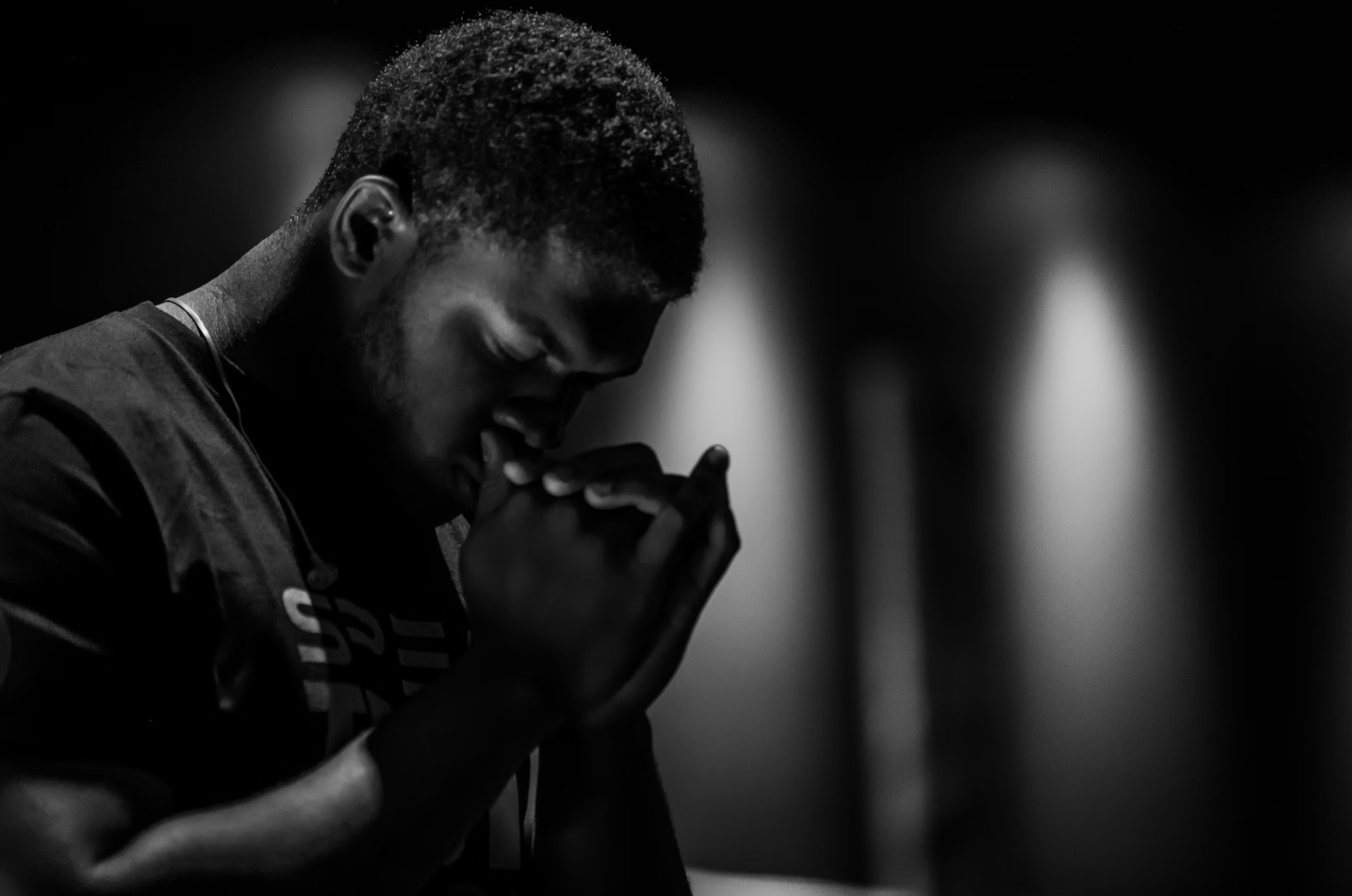Barabbas. A murderer, a thief, a mob leader. He was undoubtedly guilty, and he knew it.


God and Forgiveness
Stepping out with Jesus as the crowds shouted for Him to be crucified instead must have been one of the most confusing moments of his life. Imagine:
A terrifying, relentless horde, and at first, you think it’s directed at you. You expected this to some level. The crimes were not committed unknowingly; of course, this day would eventually come. But as you step out to the platform, you realize the chants aren’t for you after all. The crowd is screaming for the man next to you. And you don’t know who He is or what He’s done, but you know that because of Him, you’re about to be freed. Guilty, but pardoned. Free.We’re Barabbas.


I don’t know what you’ve done in your life. I don’t know the things that keep you awake, what you regret, and what kills you, knowing you can’t take it back. But I know the things I’ve done. And I know that, no matter how good or bad your life may be compared to others, you have done things you regret. A harsh word, a fight. Hands thrown when they shouldn’t have been, lack of mercy, a brutal lie, a devastating truth. A retaliation at a petition for love or taking someone’s chance to feel love at all.
No matter how big or small, it kills you. It’s hard to believe that God forgives us. How, we wonder, could a perfect God forgive a sinner like me? Like them? The world hates us — even the world, imperfect as it is, understands that I messed up. So how could a perfect God be okay with this? It’s a good question. After all, the Bible says God ‘...hates the wicked…’ (Psalm 11:5, ESV), and that the ‘wages of sin is death…’ (Romans 6:23, KJV). So, how could we believe that he’s okay with it?Well, as it turns out, he’s not. God does hate sin. In fact, the Bible distinctly states that the wicked ‘will suffer the punishment of eternal destruction, away from the presence of the Lord and from the glory of his might’ (2 Thessalonians 1:9, ESV). The Bible states that this ‘eternal destruction’ or ‘eternal punishment’ (Matthew 25:46) is exactly what it is described to be in verses such as Romans 6:23, Psalms 37:10-11, and Jude 1:7—death. It’s not exactly promising from the get-go.
But let’s look at the end of this verse, Romans 6:23: “For the wages of sin is death, but the free gift of God is eternal life through Christ Jesus our Lord”(NASB). Yes, we do deserve death. But God is a God of love (1 John 4:8). While He detests sin, He loves us. We all have heard John 3:16, “For God so loved the world that he gave his only begotten son, that whosoever believeth in Him shall have eternal life” (NKJV). It’s a cornerstone text for a reason. And that’s the whole point of faith and grace and forgiveness: that God loves us, that Jesus saved us. We were ‘dead,’ but now, through grace and Jesus’ payment of this price—dying for us—we live (Ephesians 2:1-5).What does it take to receive this grace? One thing. Belief.
God promises in 1 John 1:9 that “If we confess our sins, he is faithful and just and will forgive us our sins and purify us from all unrighteousness.” (RSV). It’s really not about us, or what we think we deserve, or even what we think others do. God’s promises are obvious. He will always give us the chance to be forgiven. As God states in Jeremiah 32:27, “I am the Lord, the God of all mankind. Is anything too hard for me?” (NIV). Our sins are not too much for God. No matter their depth or darkness or repetition, God can handle it as long as we let Him.
It’s never too late. But it’s not just once that we sin, is it? No, so often, we sin, ask forgiveness, and then sin again—or in the same way. Unintentionally, we make mistakes over and over again. Is forgiveness still valid, then?As Jesus states in Matthew 18, we are forgiven at least ‘seventy times seven’ times. The literal calculation of this is lost in the enormity of shortcomings and mercies. Just because you come back and fail doesn’t mean you can’t return. As long as you come, you will be welcomed. The stories in the Bible are numerous and intense: the Israelites, Jonah, David with Bathsheba, Peter’s denial of Jesus, and Saul in his persecution of the Christians (who he later joined as Paul). Purposeful ignoring of God, adultery and murder, deceit and rejection of Jesus, genocide—the biblical heroes pretty much did it all, and yet all of them were forgiven. I’ve mentioned in other blogs the ‘thief on the cross.’ Let’s look at him. Crucified for his crimes, he’d clearly made mistake after mistake—and was paying for it. However, this common thief (no more special than either of us) was fortunate enough to be suffering his punishment next to Jesus, whom he came to defend and believe. “... Jesus, remember me when you come into your kingdom” (Luke 23:42, NIV). Simple but honest and full of faith. We don’t need to be leaders, pastors, or scholars to ask God for His forgiveness. It doesn’t matter. Ephesians 2:8-9 says, “For by grace you have been saved through faith; and this is not your own doing, it is the gift of God—not a result of works, lest any man should boast” (RSV).Faith is what matters; God’s grace is what matters. We already have one-half of that equation guaranteed. The other is up to us.Like Barrabas, we are granted undeserved freedom. All it takes is for us to go to God, admitting our mistakes and asking for help and forgiveness. You can ask right here, right now. And I encourage you to do so.
So now what? God’s given you freedom, a new life, and finally, rest from the guilt of your sins—the chance to start over. So, will you?In these Bible verses it often talks in particular about God’s forgiveness to us—and thus our forgiveness to others. Ephesians 4:32 (NIV), among others, states, “Be kind and compassionate to one another, forgiving each other, just as in Christ God forgave you.” Again, I don’t know what you’re holding onto, and I don’t know why. It may be entirely justified, and I am in no way compelling you to give up something you’re not ready to do. That’s between you and God. But consider this: We owe God our life itself. Yet, He gave it back to us. If He can forgive every transgression of ours, maybe we can ask for His help in working towards forgiving some, too.
If you don’t know how to ask for forgiveness, let me lead you through a short, guided prayer. Remember, God doesn’t care how you come to Him. Come as you are. He’s waiting.Dear God,
Thank you for your mercy and grace.You have created everything in this world and the universe, yet you still care for me. Thank you for your promise to cover my sins and to forgive me for all my wrongs. I’m sorry for all I’ve done. I’m sorry for hurting others and for hurting you. Please forgive me and help me to change. Help me remember that I can always return to you and forgive others as you have forgiven me. Thank you for this assurance—and your endless mercies. Please help me to be as forgiving and merciful as you are. I love you.Thank you for loving me. Amen

“Come to me, all you who are weary and burdened, and I will give you rest. Take my yoke upon you and learn from me, for I am gentle and humble in heart, and you will find rest for your souls. For my yoke is easy and my burden is light.”
Matthew 11:28-30, NIV
If you’d like to learn more about forgiveness, take our Hope.Study course: Can You Live Forever?





